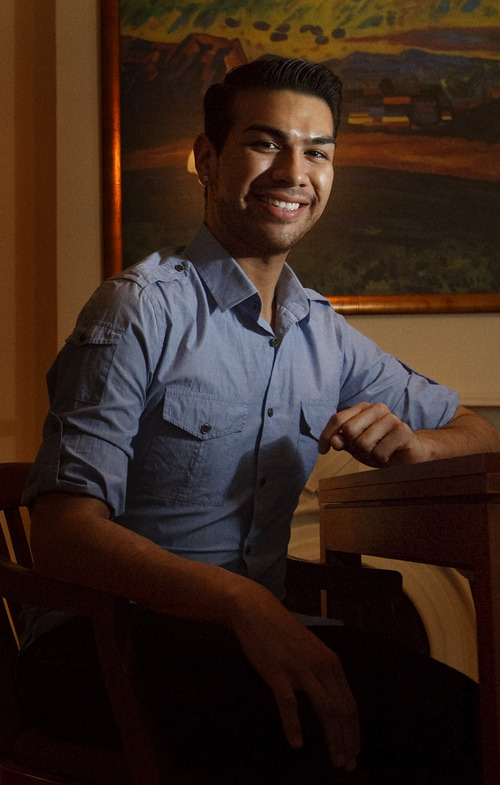This is an archived article that was published on sltrib.com in 2011, and information in the article may be outdated. It is provided only for personal research purposes and may not be reprinted.
Dustin Porlas, a junior at the University of Utah, has far-ranging academic interests that go from speech to nutrition. But he also has a focused career goal: He wants to be an international judge for the United Nations.
To get there he intends to switch his major to peace and conflicts studies if the U. gets approval to offer it. The proposed major, which builds on an existing minor, received a green light from U. trustees Tuesday, but still requires approval from the state Board of Regents.
"This will help me get work background in that area," said Porlas. "The major would give me a better perspective on diverse cultures around the world." He transferred from Weber State University last year, after obtaining his associate's degree in criminal justice, to pursue a bachelor's in international studies.
The interdisciplinary academic field, which studies the origin of conflict and its peaceful resolution, is growing nationwide but no major is available at any Utah university. As of 2008, 177 North American universities had bachelor's programs, many of them at major public research institutions, such as the Pac-12's Berkeley, University of Colorado and Arizona State University, according to documents supporting the U. proposal.
"In the last decade we have seen a remarkable rise in these programs. They have moved from a luxury or curiosity to something people perceive as essentials," said Randall Amster, executive director of the Peace and Justice Studies Association based at Arizona's Prescott College. "There is a science of peace and how to achieve justice,"
The U.'s major would include a 33-hour curriculum and an international dimension that draws from many areas of campus, according to humanities dean Robert Newman, who initiated the program in 2005.
"You can't talk about peace and conflict in silos or in strictly nationalistic terms. We talk about how countries work together and issues that put peace in jeopardy," said Newman, the U.'s vice president for interdisciplinary studies. It also will build on the U.'s master's program in environmental humanities, and graduate degrees may be offered in the future.
"Because peacemaking involves the appreciation of diversity, students will be encouraged to study matters of difference related to class, ethnicity, race, gender, environment and religion," wrote the major's chief proponent, communications professor Leonard Hawes, in an outline presented to U. trustees.
The U. program, which Hawes directs, collaborates with a similar one at Utah Valley University. This program, called peace and justice studies, has offered a minor for a few years, and expects to launch a major a year after the U.
UVU is organizing trips to Haiti, Cuba and the Middle East this summer and U. students in the peace and conflict studies program are invited to join, according to Michael Minch, director of UVU's peace and justice studies program.
"We feel our programs are mutually beneficial. We have strengths that reinforce each others' programs," said Minch, an associate professor of philosophy and a board member for the Peace and Justice Studies Association.
According to Hawes, the major will equip graduates with skill sets that would be valued by employers in human resources, counseling, community mediation, labor negotiation, politics, nonprofit management, law, diplomacy, social movements, international human rights, and socially engaged applications of the arts.
Minch said potential major employers include nongovernmental organizations engaged in humanitarian efforts around the world.
About 25 to 30 U. students graduate each year with the minor, and a survey indicates that 85 percent would major in peace and conflict studies if it were available.
"This is bottom up. We are carrying through with burgeoning student and faculty demand," Newman said. Some 47 faculty, mostly in the humanities and social sciences, are affiliated with the major. Officials believe 35 students will sign up for the major in its first year and that number will quickly grow to 50. Many of them will be double majors, pairing peace and conflict studies with political science, international relations, professional health fields and business, according to Hawes. The program, supported by the Tanner Human Rights Center, needs no new funding to offer the major.
Porlas was elated to learn U. trustees endorsed the major. He will pair the major with speech communication, along with minors in health and nutrition. He plans to study at Oviedo University in northern Spain next fall. He hopes to work for the United Nations after graduation, then pursue a law degree.



